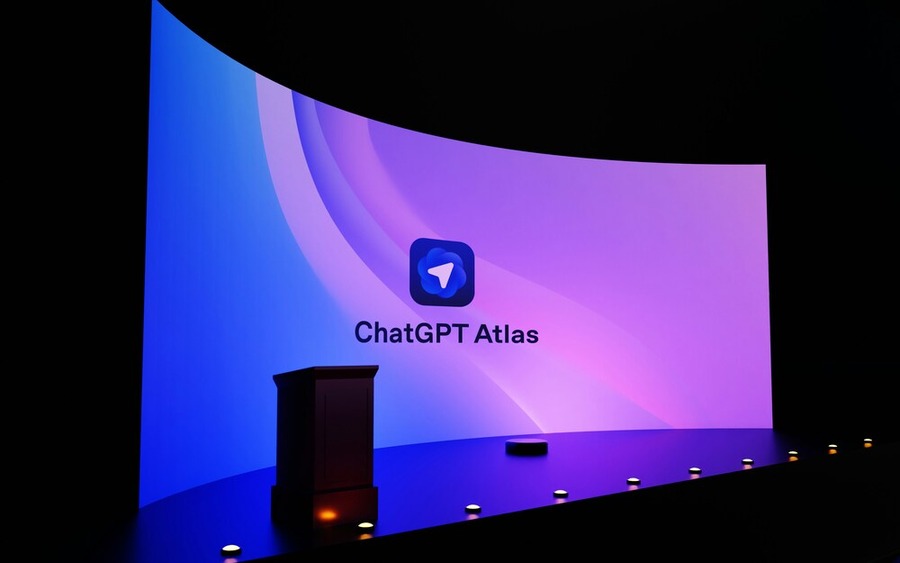Will ChatGPT Atlas change who controls the web, and at what cost?
OpenAI’s new browser raises big questions about privacy and brand control

When OpenAI launched Atlas, an AI-powered browser built around ChatGPT, it positioned it as a smarter way to browse. Atlas lets users ask ChatGPT about any webpage in real time, turning the traditional browser into an interactive AI assistant.
This move signals a shift in how people explore the internet. Browsers are no longer just windows to the web but smart companions that help interpret it. OpenAI framed Atlas as a direct challenge to Google Chrome, and it arrives just as Perplexity AI’s Comet rolls out globally with its own AI-first browsing experience.
Atlas integrates ChatGPT directly into the browsing interface. Users can click “Ask ChatGPT” on any page, get summaries or critiques, and, if permitted, allow the assistant to remember their context or perform tasks on their behalf. OpenAI says Atlas aims to be a “super-assistant” that understands your activity across tools and tabs.
That sounds useful. But it also changes things that matter deeply to users and brands: who collects what data, and who controls the message.
Privacy & data-collection concerns
Atlas’s strengths rely on tracking page content and user interactions. As Proton highlighted in its recent blog post, Atlas’s most powerful features, like viewing webpage content, remembering browsing history, and acting autonomously, depend on extensive data collection.
This raises familiar but serious privacy questions. Security researchers and privacy-first companies warn that AI browsers risk leaking sensitive data and creating new long-lived chat logs that could be re-identified. The Washington Post called Atlas “a browser that out-surveils even Chrome.” That level of data visibility puts OpenAI in the same position that once made Google controversial.
These concerns are not abstract. OpenAI’s own privacy policy says browsing data may be used to improve ChatGPT’s performance, a practice similar to how Chrome powers its ad targeting. The risk is trust erosion. In regions with strong data protection laws like the EU, this could slow adoption significantly.
Meanwhile, TechCrunch highlighted that Perplexity’s Comet asks for broad permissions, including Google account access for sending emails or managing contacts, raising similar alarms.
The Brand Control Problem
The second concern is that brands may lose control of how their content is interpreted and presented. Brands have long owned their website, content, FAQs, and chatbots. As noted in our newsletter, “brands have historically controlled the narrative on their websites…But with Atlas, OpenAI inserts a third-party voice into that experience.”
As OpenAI built ChatGPT into the browsing experience, the control changes significantly. When users visit a product page, ChatGPT can instantly summarize it, compare it to alternatives, or even recommend competitors.
AI assistants can also act on behalf of users, e.g., filling carts, scheduling events, and navigating pages. This autonomy moves decision-making away from brand interfaces into AI systems that interpret intent. The dialogue between the user and the brand’s website might be filtered or mediated by the AI. A page might say one thing, but the AI sidebar might summarise it differently, draw attention to competitor offers, or interpret it in a way not intended.
Marketers will no longer need to optimize only for search and social. They must optimize for how their content will be read by an AI agent. Brands need to evaluate whether their web presence is built for a future in which the browser is also their mediator. Type, structure, metadata, and clarity all become more important. If the AI mis-summarizes a site, the brand perception suffers, and its own narrative may be lost.
Security, trust & reliability
There’s also the concern that AI-powered browsers introduce new attack surfaces and trust risks. Brave warned that AI-powered browsers are vulnerable to injection attacks, where malicious code hijacks the assistant’s responses. Security firm LayerX found that Perplexity’s Comet was up to 85% more vulnerable to phishing and web-based exploits than Chrome.
If a browser AI can be hijacked, the user’s trust could be damaged. Users may avoid sites if they believe an AI browser is insecure. Also, if a brand site becomes a vector for an AI-agent attack (even indirectly), it could face reputational risk.
Putting it all together
The arrival of ChatGPT Atlas and rival browsers like Comet marks a shift in web browsing. Browsers are no longer neutral gateways but conversational mediators that read, interpret, and act. This creates new privacy and security questions for users and brands.
Many users assume a browser offers privacy or anonymity. With Atlas, the browser is enriched by a chatbot that integrates the browsing context. That means more of the users’ activity is visible to the AI. If trust drops, adoption will slow, especially among privacy-sensitive audiences.
The age of AI-assisted browsing is here, but its success depends on trust. If people feel watched or misunderstood, they’ll turn away. If they feel helped and protected, AI browsers could change how we use the web.
Still, this is a sign for brands to evolve. Websites, content strategies, and customer experiences all need to move towards a system where AI interprets what users see.
